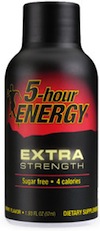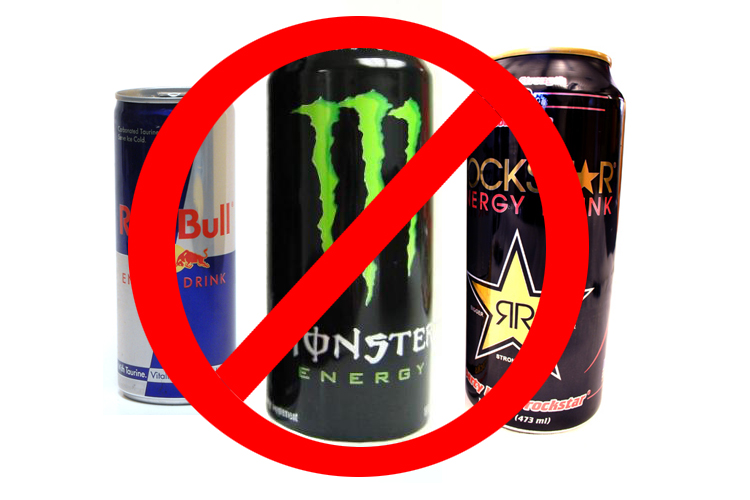Health News – Say goodbye to the caffeine-fueled all-nighter: Middlebury College in Vermont has banned campus sales of popular energy drinks such as Red Bull and 5-Hour ENERGY.
 College officials blame the drinks for contributing to “problematic behavior,” such as alcohol abuse and “high-risk sexual activity,” and say they don’t contribute to the dining service’s mission to “nourish” its students.
College officials blame the drinks for contributing to “problematic behavior,” such as alcohol abuse and “high-risk sexual activity,” and say they don’t contribute to the dining service’s mission to “nourish” its students.
A prominent flyer in the college’s Wilson Cafe states: “Energy drink consumption facilitates unhealthy work habits such as prolonged periods of sleeplessness, contributing to a campus culture of stress and unsustainable study habits.”
The college also links these drinks with increasing likelihood that students will drive drunk and use other “intoxicating” substances.
But some students are pushing back.
Arnav Adhikari, a 22-year-old senior from India who works at the cafe, said he used to sell “loads” of the drinks, and the college is over-reaching its role.
“There are more important things for them to address,” he told NBC News. “And what do energy drinks have to do with sexual activity?”
As for health claims, Adhikari added, “They still sell lots of fried food.”
But Dan Detora, executive director of dining hall services, says the initiative makes sense. “I see it as the equivalent of banning cigarettes,” he told NBC News.
Detora said these drinks have been linked to cardiovascular events, seizures and liver damage, and other colleges have begun similar bans.
The ban was approved by the college’s Community Council, which includes faculty, staff and 12 students.
Health experts agree that energy drinks, when abused, are at best unhealthy, and at worst dangerous: Even just one 16-ounce energy drink can increase blood pressure and stress hormones and could put a healthy young adult at risk for heart damage, concludes a 2015 Mayo Clinic study.
The American Academy of Pediatrics says energy drinks have “no place” in the diet of children and adolescents.
Red Bull lists its caffeine content as 80 milligrams for each of its 8.4-ounce cans — about the same amount as an 8-ounce cup of coffee. A Regular Strength 5-hour ENERGY shot contains about the same caffeine content as a 12-ounce cup, according to its website. Both contain vitamins and other additives.
Neither company responded to an inquiry from NBC News about Middlebury’s decision to stop selling their products.
Khine Su, 21, a Middlebury student from Myanmar, said she relied on a berry-flavored energy drink while writing her senior thesis throughout the night.
“I have friends who drink six shots a day,” she told NBC News. “For me, one shot works, but I can’t sleep afterwards and go straight to class in the morning.”
At least one student says he won’t go near the drinks after a bad experience.
“When I was playing football in high school I took a shot and felt absolutely miserable,” said Phil Hoxie, 21, of Orinda, California. “My heart kept pounding.”
But Hoxie told NBC News, “It’s part of learning. The school can’t be responsible for everything in your life.”
Middlebury students aren’t banned from consuming the drinks — they just have to buy them elsewhere. And Guayaki Yerba Mate, an energy shot made from organic tea that’s considered a healthier alternative, will still be available in campus cafes.
Nonetheless, some students say they’ll stick with traditional methods of caffeine.
“You can get the same effect from a double shot of Starbucks,” Hoxie said.
by SUSAN DONALDSON JAMES, NBCNews.com

